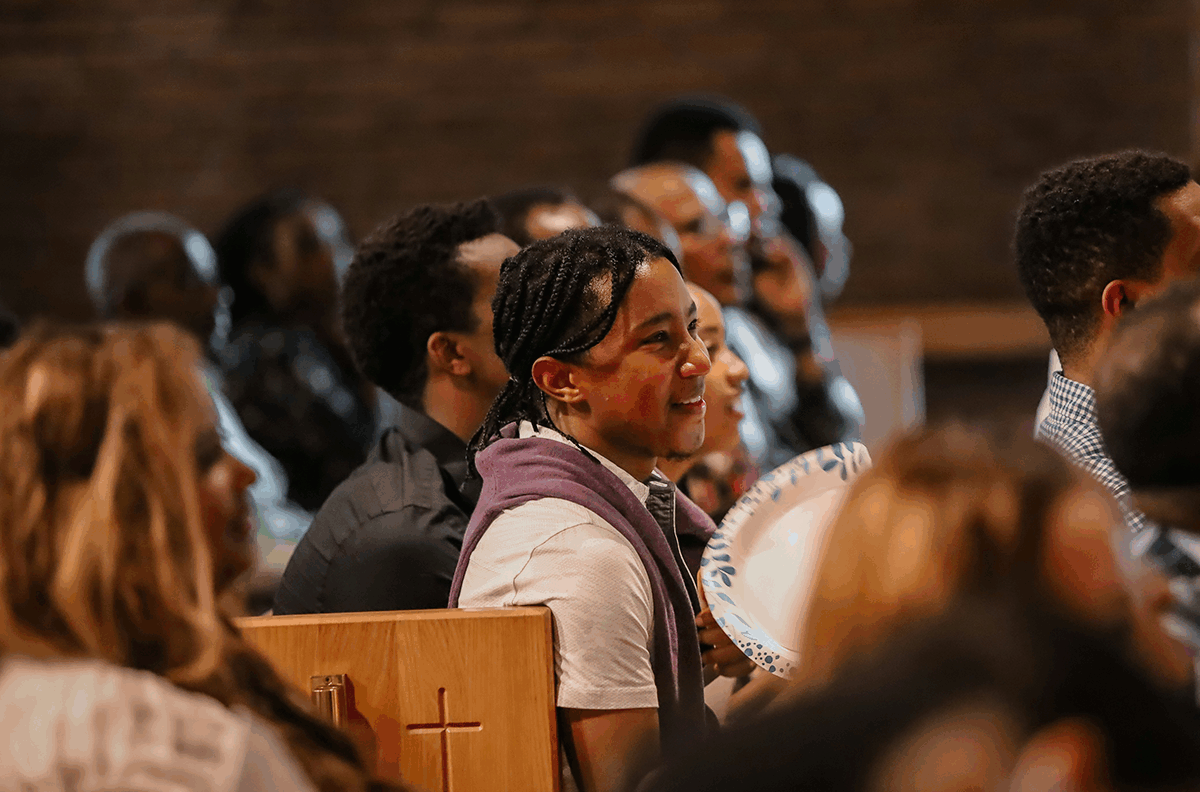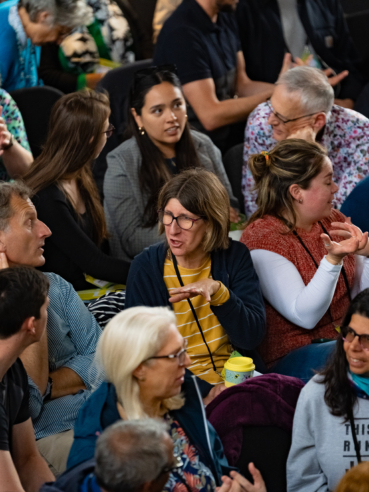Let’s say you know an 18- to 35-year-old. The odds are pretty good that you do. Maybe you’re in this age group yourself. Or maybe you’re a parent or a friend of someone who is. Or maybe you’re a student minister, or a church leader attempting to reach this age range.
What is the most effective thing you can do to help them grow spiritually?
Our research shows that it’s to help them find community – but not just any community. In partnership with CCX, we’ve recently concluded a study on what helps 18- to 35-year-olds grow spiritually. Community was mentioned twice as frequently as the next-most-common cause. We found that the most effective communities involved:
- Interaction with peers AND investment from a more mature Christian: these types of community help Christians mature in different ways. Think Jesus and the twelve disciples: these early Christians grew both from learning from Jesus and working out their discipleship together
- Trust and authenticity: in order to grow, Christians needed to be honest about what was going on in their lives
- Christians modelling growth to each other: When 18- to 35-year-olds saw others become more Christlike, it set a new standard for them to emulate. As respondents explained, seeing others follow Jesus passionately “redefines normal”
- Challenge and accountability: Participants said they had grown when fellow Christians had wisely discerned opportunities to ask them about things they might prefer to ignore, hold them to account for things they had felt called to do, and directly challenge them on sinful behaviour. Interestingly, these themes were mentioned much more frequently for peer-to-peer relationships than they were for relationships with a more mature Christian
- Opportunities to try new things. Often, mature Christians would create opportunities for younger Christians to try something new, such as taking on leadership, serving others, participating in evangelism, or exercising the gifts of the Spirit. These opportunities helped younger Christians build their ability and confidence and, in some cases, discern what God might be calling them to
Getting community right is essential. Interestingly, many of the barriers to spiritual growth in 18- to 35-year-olds also had to do with community: either unhelpful forms of community (primarily with other Christians!) or a lack of any community at all.
However, when Christians participated in the types of communities described above, the effects were astonishing. Respondents described how their spiritual growth had:
- Inspired others to grow spiritually
- Created opportunities for evangelism, as they became less afraid to speak about Jesus and more equipped to do so – and others saw the change in their lives
- Caused them to invest in others’ spiritual formation
- Led to others becoming Christians
- Improved how they treated others
If you’re a Christian between the ages of 18 and 35, how might you seek out and create communities such as the ones described above? (The “create” part is important: perfect community doesn’t exist, but you might be able to help your church do this a little better.) If you know an 18- to 35-year-old, how might you point them to a community which will help them become more like Jesus? And if you’re a church leader, how might you create formational communities involving both peer-to-peer relationships and investment from a more mature Christian (spiritual direction, mentoring, etc.)?
As this research has shown, Christian community is not just important to the inward life of the church, it is one of the Spirit’s most powerful means of creating compelling, mature disciples who share Jesus with the world. What is your church going to do about it?
Next step: Read our report (or the executive summary, if you’re short on time): Five practices, one experience, and the Holy Spirit: Exploring spiritual growth amongst 18- to 35-year-olds in the UK church.













